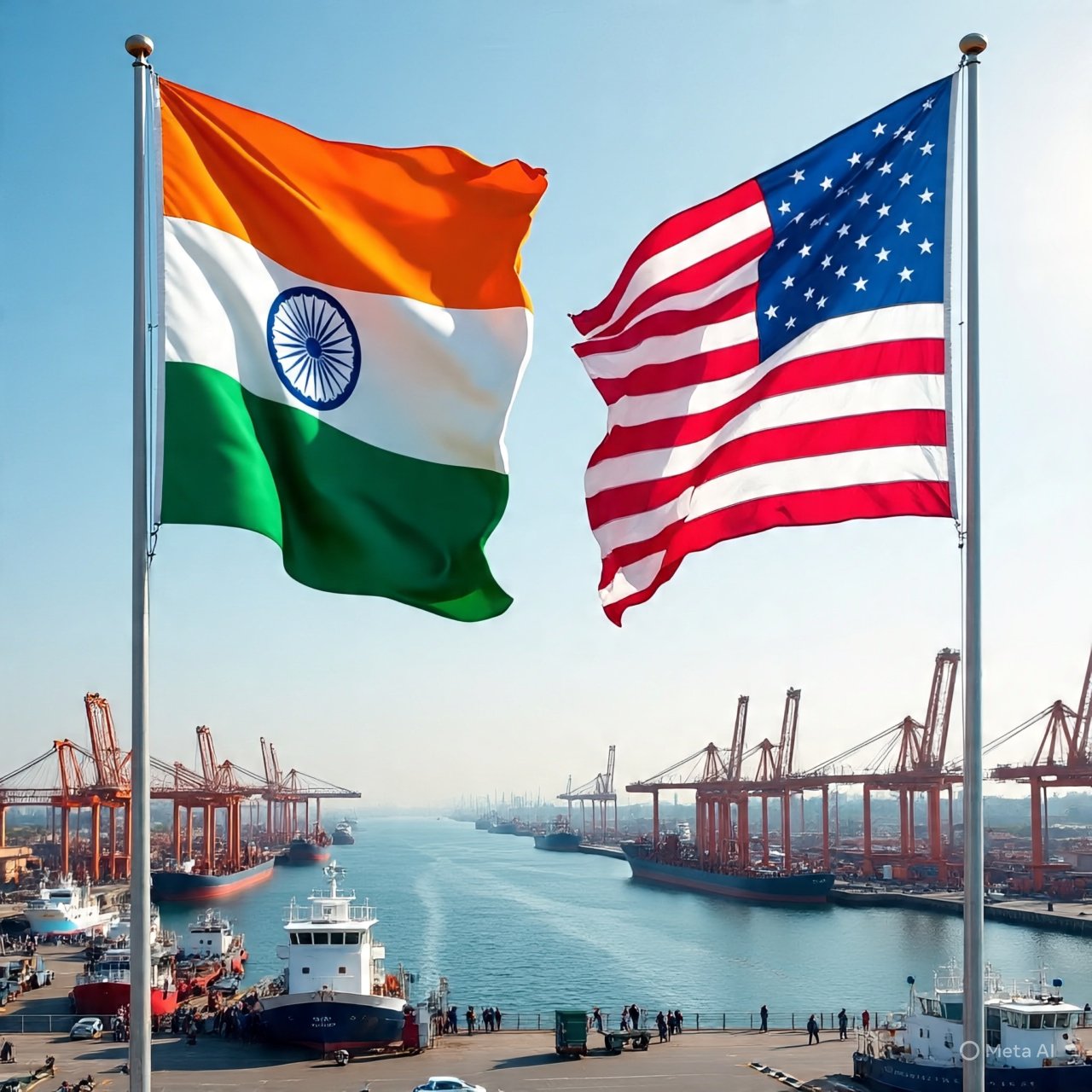
India is preparing to impose tariff countermeasures on select American goods in response to the United States’ decision to increase import duties on Indian steel, aluminium, and related products. The move comes after Washington announced a steep 50 percent duty in June on these metals, creating fresh tension in trade relations between the two countries. People familiar with the matter said India has already prepared the legal groundwork for this retaliatory action under World Trade Organization (WTO) rules.
The tariffs on steel and aluminium have been an ongoing point of contention since the Trump administration first imposed 25 percent duties on the metals in February 2018. When talks to resolve the dispute failed, the US doubled the levy to 50 percent in June this year. India had taken the issue to the WTO and obtained permission to impose countermeasures worth 7.6 billion dollars annually on US exports affected by the duties.
Sources said that New Delhi may start the retaliation with a proportional response to the US action, focusing on American exports such as agricultural products, industrial goods, and possibly other high-value categories. The plan is to target sectors where the US has a significant trade surplus with India, thereby creating pressure for negotiations.
India has maintained that the US tariffs are unjustified and violate global trade rules. The WTO has already ruled against Washington’s claim that the duties are necessary for national security. The US, however, has ignored the ruling. An official said that Washington’s unwillingness to address India’s concerns through dialogue has left New Delhi with little choice but to act.
Trade between the two countries has already been affected. In 2024, the US exported over 45 billion dollars worth of goods to India, while India’s exports to the US reached 86 billion dollars before the tariff hikes began. Energy exports from the US to India were worth 13.62 billion dollars in 2024–25, and there was also significant trade in electronics, chemicals, and other goods. The US enjoyed a services trade surplus of 8.4 billion dollars with India in 2024, making it a lucrative market for American companies.
However, relations have soured since early this year when Indian exports worth billions were hit by the increased tariffs. India argues that these measures have undermined bilateral trade talks. In February, Prime Minister Narendra Modi and President Donald Trump had agreed to expand trade to 500 billion dollars and work toward a broad-based agreement. But within weeks, the US raised duties on Indian goods, stalling the discussions.
The current escalation follows recent comments by President Trump, who rejected the idea of resuming trade negotiations with India. When asked about the increased tariffs, Trump reportedly said that talks would not be resolved. This public stance has further reduced the possibility of a quick settlement.
The broader trade dispute also reflects deeper issues in the economic relationship between the two nations. India has expressed concerns over repeated use of unilateral measures by the US, calling them unfair and harmful to developing economies. Washington, on the other hand, has pushed for greater access to the Indian market, especially in sectors such as agriculture, technology, and financial services.
According to trade experts, India’s retaliatory measures are likely to be carefully calibrated to comply with WTO rules and avoid escalation into a full-blown trade war. They believe that the tariffs will target politically sensitive sectors in the US to encourage a return to negotiations.
While the immediate impact of the retaliation may be limited, it could signal a shift in India’s trade policy. Instead of relying solely on diplomatic channels, New Delhi appears ready to use trade leverage to protect its interests. The outcome will depend on how Washington responds and whether both sides are willing to find common ground.
For now, the growing tariff tensions threaten to overshadow the long-standing strategic partnership between the two countries. Observers say that if the dispute is not resolved, it could affect cooperation in other areas, including defense and technology. As the situation develops, businesses in both nations will be watching closely to assess the potential impact on their operations and supply chains.





















